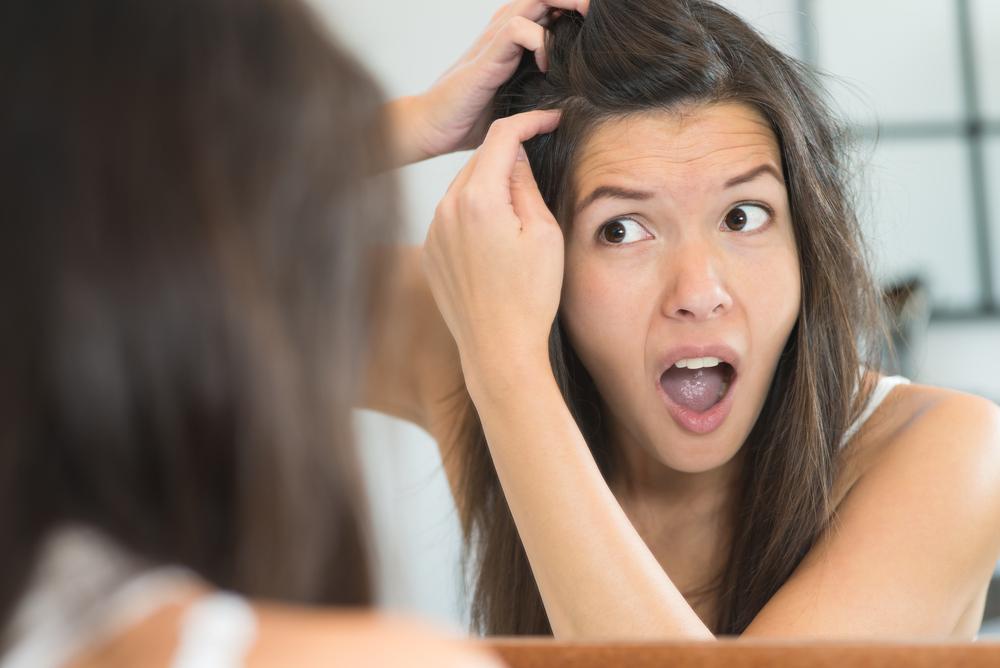Understanding Itchy Scalp And Its Causes
Understanding itchy scalp and its causes
No one has ever been lucky enough to have never suffered from some of the worst scalp problems. When we think of scalp and hair problems, dandruff, hair fall, split ends, and the likes come to mind, so much so that we think of itchy scalp as a symptom for something, rather than being a problem by itself.
Of course, this is true in many ways. An itchy scalp is a serious indicator that something isn’t right on the surface of your hair follicles. Although very little is known about why humans itch their scalp, we do know that scalp itch is a different territory on its own.

This article will help one understand the basics of an itchy scalp and what can be done about it.
What causes an itchy scalp?
- Of course, we all know what itchy scalps are caused by. There is dandruff, and of course an extremely oily or extremely dry scalp.
- There are also unconventional reasons, such as lice or a scalp infection. This way, an itchy scalp is an indicator of a condition, and as the itch worsens, so does the source of the itch.
- If it’s dandruff, it’s fairly simple. All that’s needed is an anti-dandruff shampoo or regime and within a week or so, it should be solved.
How does a dry or sensitive scalp cause itching?
- Psoriasis is a condition that causes parts of the skin to become red and flaky, and even itchy. Since it has no age or onset barrier, it can affect anyone at any time. Scalp psoriasis is one such common condition.
- There’s risk of scalp psoriasis if the symptoms return or flare up in phases. It reaches peak seriousness when it starts affecting one’s quality of life. This is a prerequisite to a dry scalp.
- Another such symptom of a problematic scalp is eczema. It’s a medical term for inflammation of the skin on the scalp. Eczema can also happen anywhere, but happens mostly on the scalp, and it causes a dry scalp and a lot of itching.
- As for sensitive scalp, the situation is a little different. Everyone exposes their scalp to pollution, irritants, and chemicals in various hair products. However, some people’s bodies respond differently to such exposure and develop a sensitive scalp.
- This sensitivity is seen in the form of pain and irritation, leading to a lot of itching.
- Surprisingly, one of the strongest causal factors of a sensitive scalp is chlorinated water, from swimming pools!
How can an itchy scalp be treated?
- As with most health problems, the solution lies in treating the root cause of the problem. Itching is most likely a symptom. Of course, there are ways to fix the itching itself, but that will provide only temporary relief.
- Some common immediate solutions include brushing one’s hair and massaging the head thoroughly. This encourages blood flow and alleviates the itching temporarily.
- However, for more permanent and long-lasting solutions, one should invest in a hair care routine, one that includes massaging, washing, and monitoring what products eventually get to one’s hair and scalp.
- A good tip is to avoid all products that contain parabens and sulfates, as both are known irritants and dry out the scalp completely.
Can an itchy scalp lead to hair loss?
- Picking at one’s hair and treating it in a rough manner is exactly what causes hair to break, but this will inevitably happen with the itching. So individually, dry or sensitive scalp may not lead to hair fall, but the resulting itching will. Of course, it’s a cause and effect situation—once the itching and root cause have been alleviated, hair should be back to normal, with hair fall under control.
- As for keeping an itchy scalp itself at bay, there’s very little that can be done. It is the everyday things, such as covering one’s hair to keep it protected from the sun and other pollutants, that will help prevent it.
- In case of long hair, also ensure that it’s not tied unnecessarily tight, as this will strain the scalp.

